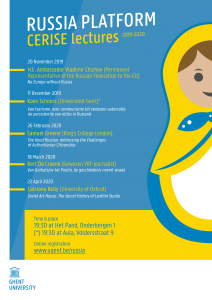‘Russia and China in the 21st century: Between Cooperation and Competition at the Regional and Global level’
There is broad recognition among scholars that the liberal world order that emerged in the post-Cold War era is under strain. While growing political polarization in Western societies is undermining the current world order from within, non-Western powers are increasingly challenging Western hegemony and are attempting to shape a new world order. The colloquium will focus on two of the main protagonists of this global transformation, namely Russia and China. In particular, the conference seeks to shed new light on how Russia and China (are seeking to) create a new international order. Importantly, Russia and China are also neighbours, with a contentious historical relationship, and in their mutual strive to create a non-western international order, they are not only partners but also competitors. Nowhere does this duality emerge more openly than in Central Asia, a region traditionally dominated by Russia but increasingly becoming under China’s sphere of influence. Moreover, Russia is itself witnessing the effects of China’s rise, as China is making several inroads into Russia. Indeed, as China further embarks on implementing its Belt and Road Initiative, it is slowly changing the face of Eurasia, including Russia.
With the purpose of shedding further light on the role of Russia and China in these ongoing regional and global developments, we invited contributions from a wide array of disciplines, including political science, international relations, economy, law, anthropology and area studies.
There are 4 parallel sessions during the day, with a keynote panel in the afternoon.
Keynote speakers
Timofei Bordachev is Associate Professor at the Faculty of World Economy and International Affairs, Higher School of Economics (Moscow), and Programme Director of the Valdai Discussion Club.
Yang Cheng is Professor of International Relations and Assistant Dean of the School of International Relations and Public Affairs, Shanghai International Studies University.
